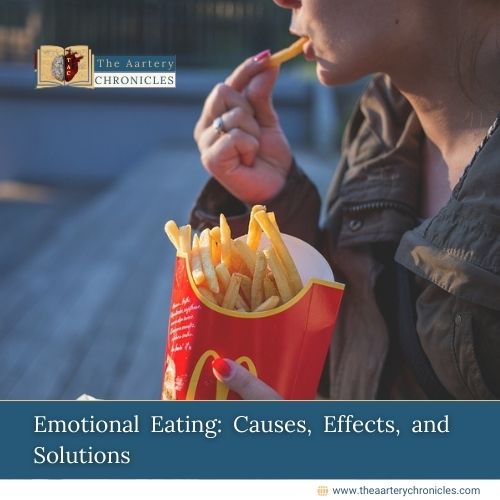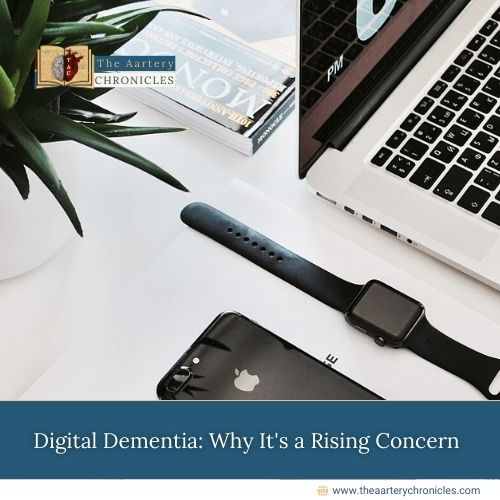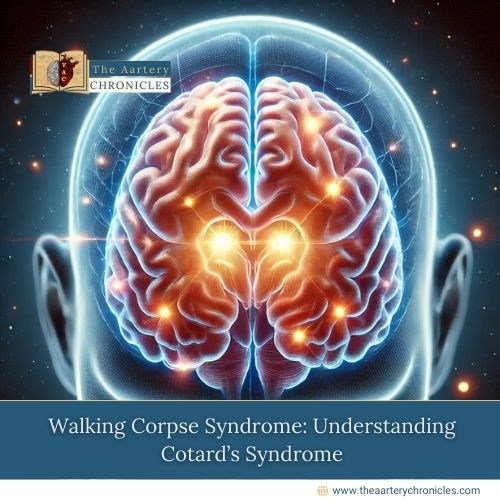

Emotional Eating: Causes, Effects, and Solutions
Overview
Picture this: you are watching a film in the cinema hall, and you buy some popcorn/chips in the interval. The question here is are you hungry? Is your stomach rumbling or are you eating just because you are watching a film, as that is what everyone normally does? Are we just eating for the sake of it by imagining we are hungry?
There are many instances in our daily life when we indulge in emotional eating. A very good example is when you refuse the last piece of chocolate cake as you have had dinner to your heart’s content. You do feel bad about refusing it, but the thought stays with you. No wonder you wake up in the middle of the night and head for the fridge to have that last piece of chocolate cake ! Why did you eat it ? Just because it was the last piece and someone else would have it the next day and you will be left twiddling your thumbs! Your stomach was not asking for it but you craved it so much that you just couldn’t control yourself. This is known as Emotional Eating (EE) when we eat not because we are hungry but as an emotional release.
Reasons for emotional eating
In times of stress anxiety grief loneliness boredom or fatigue, we tend to eat more to manage these emotions. This is just not the way to manage your emotions! Eating chips, cookies, chocolates, will only make you gain weight, and nothing else! Instead of working your feelings, you are adding to it, the emotion of gaining weight, which, as we all know, has adverse effects on the functioning of our body.
Let us see the factors that mainly cause emotional eating.
- Stress: Work-related stress, relationship stress, financial stress, domestic stress
- Health issues
- Dieting: Following restrictive diets or dieting frequently
- Inability to recognize our feelings
- Inability to understand, process, or describe our emotions aka alexithymia
- Inability to manage emotions aka emotional dysregulation
- Reversed hypothalamic pituitary adrenal (HPA) stress axis (underactive cortisol response to stress)
Side-Effects of emotional eating
So, what if Emotional eating is unhealthy, we have many other factors that can help us cope, without guilt, with all the ups and downs in our lives.
- Weight gain: Emotional eating can cause weight gain as we are mindlessly binge-ing on fast food/junk food that is “supposedly” our comfort food. On the contrary, we are just increasing our waist size!
- Digestive issues: Emotional eating is eating despite being fully satiated. There is no requirement of food at this point of time, as this is the time when our digestive process is underway. But we interrupt the digestive process with emotional eating and all our digestive activities go for a toss. This may lead to chronic indigestion, gas buildup, bloating, constipation, loose motions, etc.
- Lethargy: Emotional eating makes us lethargic and we feel dull. We are unable to function normally and we tend to sleep more. Our alertness is lessened and we feel like doing nothing. Just putting our head on the pillow and sleeping away.
- Addictive: Emotional eating can be addictive. Once we begin, it is difficult to cease. It becomes an automatic response to any emotional situation.

- Mindlessness: Emotional eating is mindless. We gorge on the food irrespective of anything else. We tend to feed our emotions rather than our stomachs. We ignore that our stomach is signaling that it is full and we continue eating and eating.
- Coping mechanism: Emotional eating becomes a coping mechanism for us. Eating releases Dopamine, a brain chemical that makes us feel good, and thus we tend to over-eat.
- Sudden: Emotional eating happens suddenly, irrespective of whether we are hungry or not. These sudden cravings are difficult to resist.
- Triggers: Emotional eating gets triggered by the need for solace or comfort. If we need some comfort, we automatically reach out for food, if there is no one with whom we can share our feelings.
- Reward: Emotional eating can be a reward for us. E.g. if we have done something commendable, instead of a pat on the back, we move towards the cookie jar!
- Unhealthy: Emotional eating can prove to be unhealthy as we are eating beyond our limits. We are inviting illnesses that are incident to unhealthy eating. Thereby increasing the scope of diabetes, obesity, cardiovascular ailments, poor immunity, frequent infections, and disturbing our body cycle.
- Disturbed sleep: Emotional eating can cause sleep disruptions as we feel uneasy and unable to sleep. Our sleeping patterns are disturbed and we tend to wake up tired and cross the next morning.
- Low attention span: Emotional eating lowers our attention span. We are unable to focus on the task at hand and have a miserable day!
- Universal: Emotional eating is universal. It can be felt by anyone irrespective of age, caste, creed, race, or sex.
- Sign of eating disorder: Emotional eating cannot be defined as an eating disorder. Rather it can be termed as a sign of an eating disorder, eventually leading to developing an eating disorder.
Whew! Who knew that there is so much behind just that one small instance of sneaking a piece of chocolate cake at midnight?
Coping with the pitfalls of emotional eating
So, what if Emotional eating is unhealthy, we have many other factors that can help us cope, without guilt, with all the ups and downs in our lives.
- Acceptance: We need to accept our feelings, whatever they are. Learn to fight and face all adversities with a smile on your face. First, you need to tell yourself that the situation that you are in, is there to stay, it is the way you perceive it that makes all the difference. Grin it or cry over it, you have to face it.
- Focus: We need to learn how to focus and manage our actions effectively. This can be done by practicing Meditation. We can discipline and train ourselves to recognize the signs of actual hunger and thirst and lessen the chances of emotional eating.
- Communication: We need to communicate our thoughts and feelings effectively. It is always good to share your emotions/feelings with your loved ones so that you can be prevented from doing anything foolish like emotional eating. It is good to have an outlet for your emotions so that you feel lighter.
- Discipline: We need to be disciplined in our life. Eating at proper intervals and adequate hydration can help to gradually ease out on emotional eating.
- Segregation: We need to segregate our work time and leisure time. This way we can do away with the stress of coping with our work and leisure time simultaneously.
- Time management: We need to manage our time effectively so that we can perform our activities to the best of our abilities. Eating at the proper time, sleeping at the proper time, spending adequate family time, working for proper durations of time, making time for hobbies/interests, making some “me time”, all help to manage our life.
- Loneliness: We need to manage our loneliness effectively. Calling up your friend for a hearty chat or sitting on a park bench or practicing your singing or carrying out any other activity that removes your loneliness.
- Reduce anxiety: We need to spend our nervous energy on activities like Zumba, dancing, and hitting the gym, to reduce our anxiety levels.
- Relieve fatigue: We can relieve our fatigue and tiredness by taking a nice bath, a soak in the swimming pool just closing our eyes for some time, or practicing deep breathing exercises.
- Hydration: We need to stay adequately hydrated to beat those untimely hunger pangs. There are apps available on our smartphones that notify us when it is time to drink water. With time and practice, we can easily distinguish the signals of our stomach, whether it wants to eat food or drink liquids.
- Proper food: We need to eat healthy proper food and say no to fast food that is oily, spicy, sweet, deep fried, and high in calories. Having a balanced diet of seeds, nuts, fruits, and vegetables, rich in all nutrients, can keep us satiated for longer periods.
- Mindfulness: We need to be mindful the activities that occur in our life. Be it cooking mindfully, or eating mindfully – being aware of ourselves is the perfect solution. Paying attention to everything around and within us is essential. While eating, enjoy each morsel and savor it. Feel the texture and taste and thank your senses for this gastronomical experience.
- Meditation: We need to practice Yoga or meditation daily to strengthen our mind and body. We need to learn to combat our unnecessary cravings for food by balancing our emotions and feelings mindfully.
- Gratitude: We need to be grateful for what we have, what we are, and where we are. Express your gratitude for all things big and small that touch your life in any way. This will make you feel humbled and peaceful.
- Self-control: We need to work on our self-control. Build strong willpower and self-control so that, in times of hardships, if you even think of emotional eating, your mind and body will say “no means NO.”
Conclusion
Life is to be lived and stress is a part and parcel of it. We cannot avoid stress but we can surely make ourselves stronger to face it. Food is not the answer to all our problems, even though the ice cream is to die for! Food should be eaten to live and not vice versa. There is so much to do in life, why waste it in emotional eating? Be positive. What you think, you will be. So, think good! Stay good and eat well.









